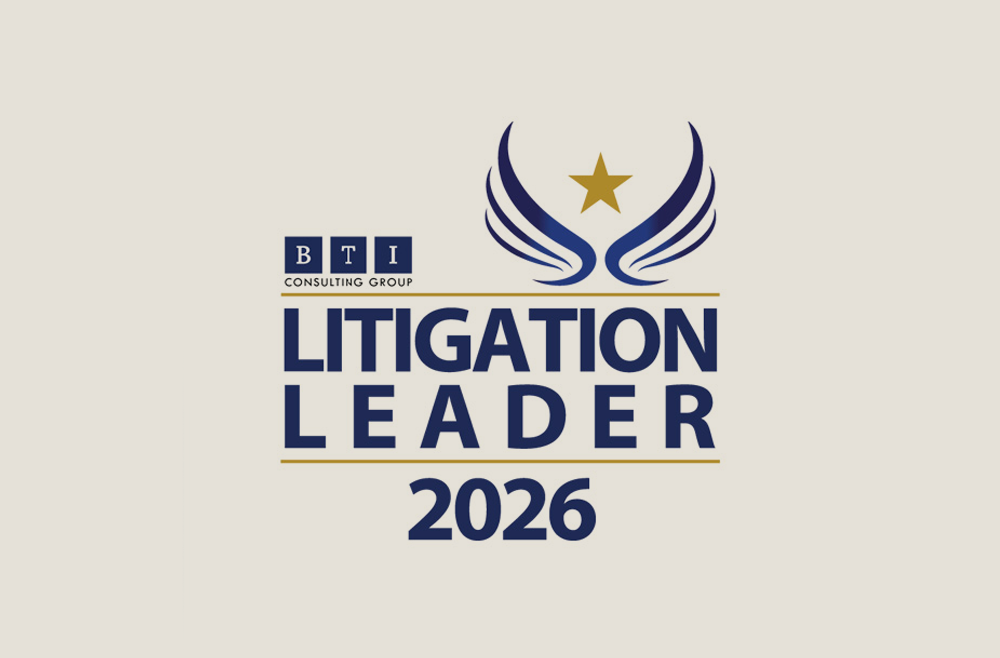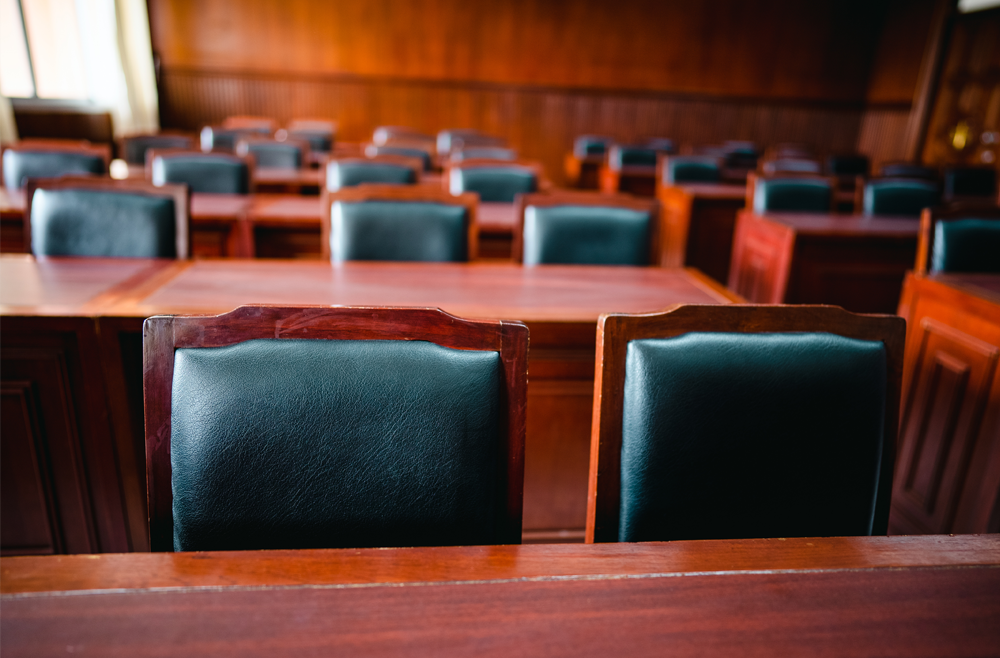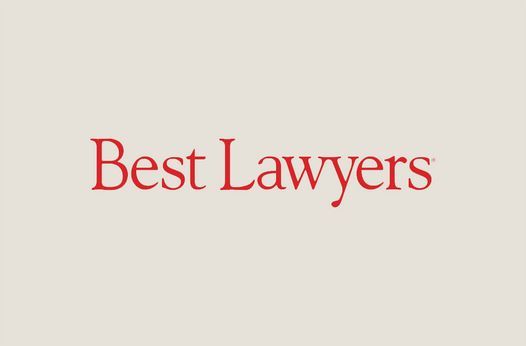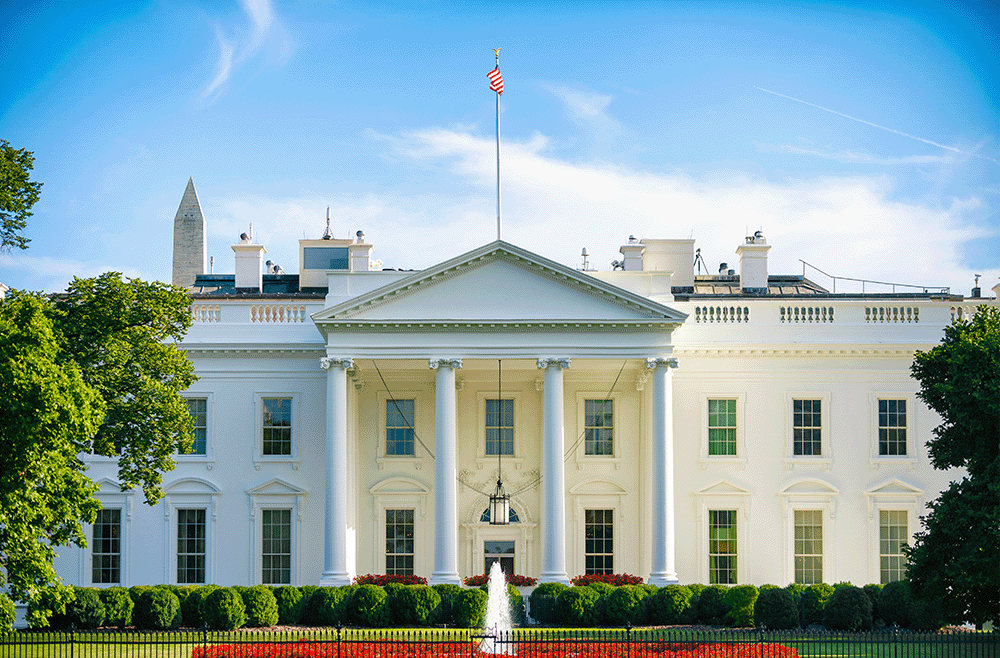Hinshaw Files Amicus Brief in Support of SCOTUS Review of New York's "In-State" Office Requirement for Practicing Lawyers
Case presents an issue of considerable importance to the ever-expanding population of lawyers who live and practice outside their states of admission
Press Release | 2 min read
Jan 23, 2017
A Hinshaw & Culbertson LLP appellate team consisting of Joel Bertocchi and Anthony Davis, together with Ron Minkoff and Tyler Maulsby of Frankfurt Kurnit Klein & Selz, P.C., filed an amicus brief on behalf of the Association of Professional Responsibility Lawyers (APRL) in support of a petition for certiorari challenging New York Judiciary Law § 470. The law prevents nonresident lawyers from practicing in New York if they do not maintain a physical office for the transaction of law business within the state. Currently, there are more than 134,000 nonresident New York lawyers.
Attorney Ekaterina Schoenefeld, who practices in New Jersey and is a member of the New York bar, challenged Section 470 as a violation of the Privileges and Immunities Clause under the U.S. Constitution. A judge of the U.S. District Court for the Northern District of New York found the law to be unconstitutional in a 2008 decision but a divided U.S. Court of Appeals for the Second Circuit subsequently overturned this decision in 2016, ruling that Schoenefeld had not proved that Section 470 was "enacted for a protectionist purpose." Schoenefeld then petitioned the U.S. Supreme Court for review.
At stake in the Schoenefeld case is the ever-expanding population of lawyers who live and practice outside their states of admission, and whether states can burden these lawyers by requiring them to maintain a costly physical office that does not contribute to their practice or clients. Under the law as it now stands, New York admitted lawyers who reside within the state, and lawyers in many states who maintain multijurisdictional practices, are ethically permitted to operate "virtual law offices," often from their homes, and can take advantage of modern advances in telecommunications and information sharing in order to efficiently and effectively serve their clients. But Section 470 creates the anomaly for New York admitted lawyers who are not resident in New York that they must maintain a physical office within the state.
In their brief, Bertocchi, Davis, Minkoff and Maulsby argue that the Second Circuit panel misread precedent by requiring a privileges and immunities plaintiff to prove "protectionist intent" rather than requiring the state to provide sufficient justification for a law that undisputedly discriminates against nonresidents with regard to the fundamental right to practice law. They also argue that the Second Circuit's focus on the original legislative purpose of a 150-year-old statute "ignores the technological, social, and political factors that have affected the exercise of the "privilege" at issue—practicing law—since enactment." Instead, they argue that New York’s justifications for the "physical office" requirement simply fail to hold water in the modern world.
The case is Schoenefeld v. Schneiderman. Download a copy of the APRL brief: http://www.hinshawlaw.com/assets/htmldocuments/CourtDoc/SCHOENEFELD APRL amicus FINAL.pdf
*Update. The Supreme Court denied certiorari in the Schoenefeld case in its April 17, 2017 order list.
Featured Insights

Press Release
Oct 22, 2025
Hinshaw & Culbertson LLP Launches New Website and Refreshed Brand

Press Release
Sep 26, 2025
Hinshaw Recognized as a “Leader in Litigation” in the BTI Consulting Litigation Outlook 2026 Survey

Privacy, Cyber & AI Decoded Alert
Sep 23, 2025
Fall 2025 Regulatory Roundup: Top U.S. Privacy and AI Developments for Businesses to Track

Press Release
Sep 15, 2025
Hinshaw Achieves 2024–2025 Mansfield Rule Certification Plus Status

In The News
Sep 5, 2025
Jessica Riley Reflects in a Law360 Story on Lessons She Learned as a Junior Lawyer

Press Release
Aug 25, 2025
Trial Spotlight: Hinshaw Prevails in ERISA Fiduciary Fraud Case

Press Release
Aug 21, 2025
102 Hinshaw Lawyers Recognized in 2026 Editions of The Best Lawyers in America® and Ones to Watch™





